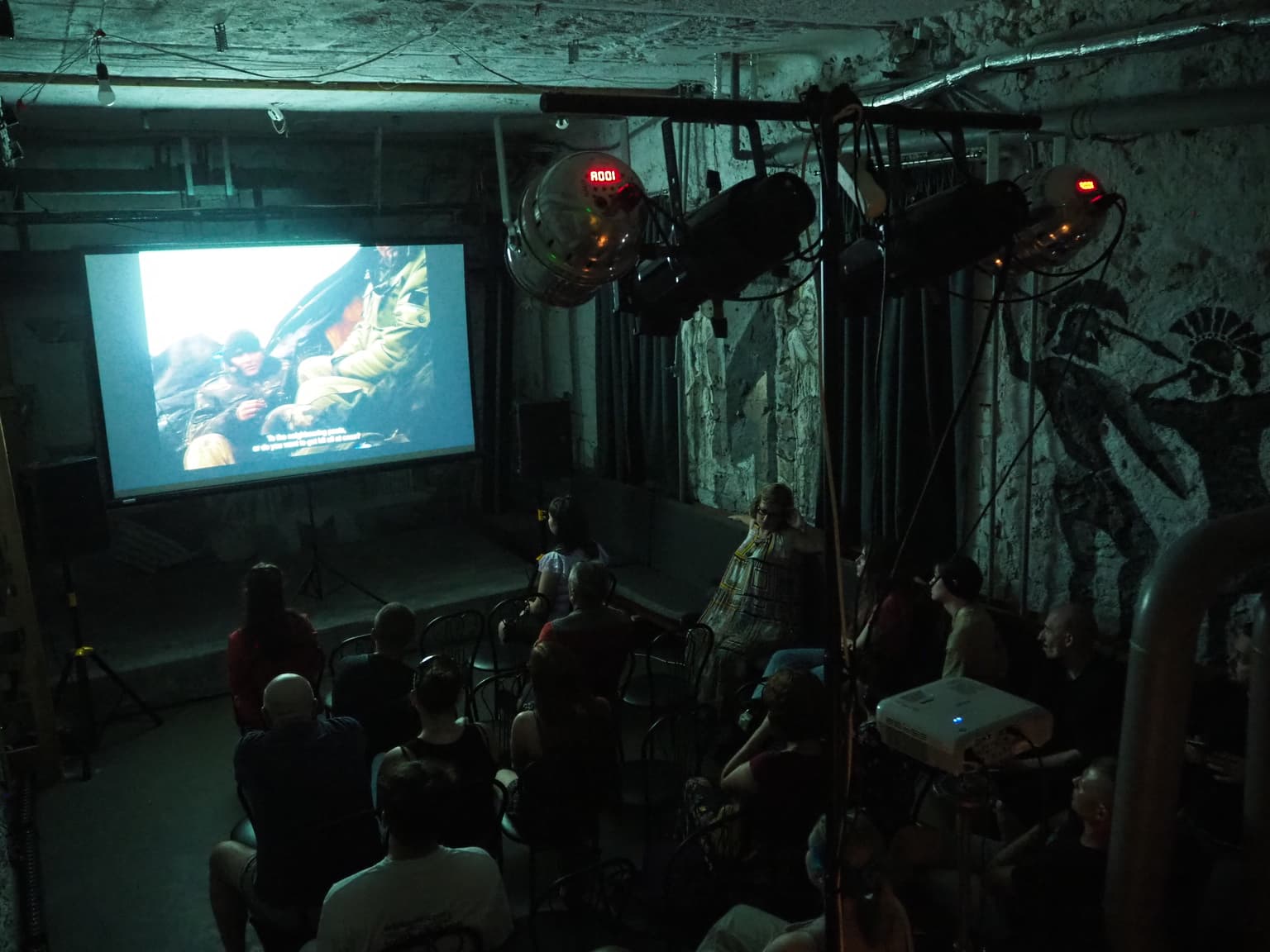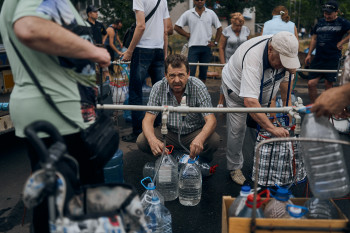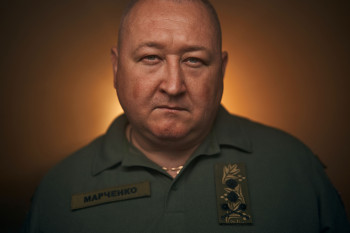Mykolaiv theater lives on from bunker amid shelling

MYKOLAIV – The bunker under the Mykolaiv academic theater was packed, with the last preparations well underway for an evening show 30 kilometers west of the front line.
It was a special night. The theater's first film festival since February was about to begin in early August despite yet another night of heavy shelling.
Nearly 40 residents and Ukrainian service people were sitting shoulder to shoulder in the dark, watching Ukrainian movies to forget the harsh reality of the war, which ravaged the regional capital constantly under fire.
Artem Svistun, the theater's artistic director, could hardly contain his excitement.
"We opened this scene for the first time thanks to the guys who organized a Ukrainian film festival in the shelter," he told the Kyiv Independent.
Svistun said it is crucial to keep culture alive, even if it means going underground. "We are the only cultural place still open in this city, and we need to fight for it."

Going underground
The first thing Svistun did when Russia invaded was to drop the "Russian" in the theater's name. Until Feb. 24, the theater's full name was the "Mykolaiv Academic Art Theater of Russian Drama."
"But everything changed on Feb. 24, when we gave up the name after the aggression inflicted by Russia," he said.
The elegant neo-classic hall, now mostly deserted, came close to destruction when Russian forces hit the nearby Mykolaiv Oblast Administration on March 29, eviscerating the building and killing 37 people.
Despite the risks, the theater finally opened its doors to the public again in August after being closed for nearly six months, but this time in an unusual setting.
"After months of the war, we had to open the stage in a shelter to continue to perform," he said.
The small cellar screening room, which can accommodate 40 people, double as a bomb shelter, where safety is key.
Safety measures include mandatory registration and screening of films during daylight hours before the curfew to protect residents from the deadly airstrikes hitting the city after dusk.
Actors and volunteers
The theater's ornate 450-seat hall, above ground, remains closed, but its 30-strong troupe is present and working.
In a small room located underground near the shelter, crates of food and essential products are hidden behind quaint-small-sized curtains.
"This is where we sometimes perform for children who don't cope well with the shelling," he said. "Our plays help them psychologically."
Blue and yellow pieces of fabric protrude from stacked boxes. "And this is where we sew Ukrainian flags for our troops."
The wardrobe department of the Mykolaiv theater has been working to supply the front lines by making balaclavas and camouflage netting for the troops since day one.
Some actors took arms against Russia.
"Our leading actors went to serve in the Armed Forces, the Territorial Defense, and the National Guard," Svistun said.
"The girls volunteer, they provide additional help in pharmacies and primary care centers, but our main mission has remained the same – to bring people light and moral support to them."
European help
While some actors stayed in Mykolaiv, their families had to leave for a safer place.
Part of the company has been evacuated to Bulgaria thanks to an agreement Svistun signed with other European theaters that visited Mykolaiv for an international theater festival in April 2021.
"During the last festival, we signed creative memorandums regarding support and tours," Svistun said.
Bulgarians agreed to take care of our refugees and took care of the actors' families.
He said that Georgian theater companies are collecting funds for Mykolaiv Theater, while Lithuanian ones are collecting aid and medicine to support the Mykolaiv Oblast.
And the theater needs all the help it can find. The institution was forced to stop working on March 1 and received no financial assistance from local authorities, focused on the war effort.
"But the problem remains of maintaining the building and paying utilities," he said.
Svistun said the theater receives some support from the state, but it is not enough.
"Our theater and the Mykolaiv Zoo continue to exist thanks to international support," he added.
While Georgia and Bulgaria financially help the theater, it needs more funds to survive, which is why he plans to launch "open ticket sales" where people abroad can buy tickets to support the institution, the Mykolaiv Zoo conducts a similar scheme.
"People who have financial means can help to support the theater by buying a ticket to help refugees or those who stayed here," he said.
Part of the sales' profit will go to Ukraine's military to support the troops, some to buy products for residents stuck in Mykolaiv, and the rest to the theater.
"There are lonely, elderly people who stay in the city, and we need to work for them too," Svistun said.
Svistun says he already knows what will be the first play in the theater's main hall.
The play, called "Homo Ludens" ("The man who plays" in Latin), was written by a Belarusian playwright who condemned Belarusian Alexander Lukashenko's brutal dictatorship. The director is Georgian, and the company is Ukrainian.
"Let it be an international cooperation of playwrights, directors, and actors: a victory over dictatorship, victory over tyranny for the sake of peace," he said.











